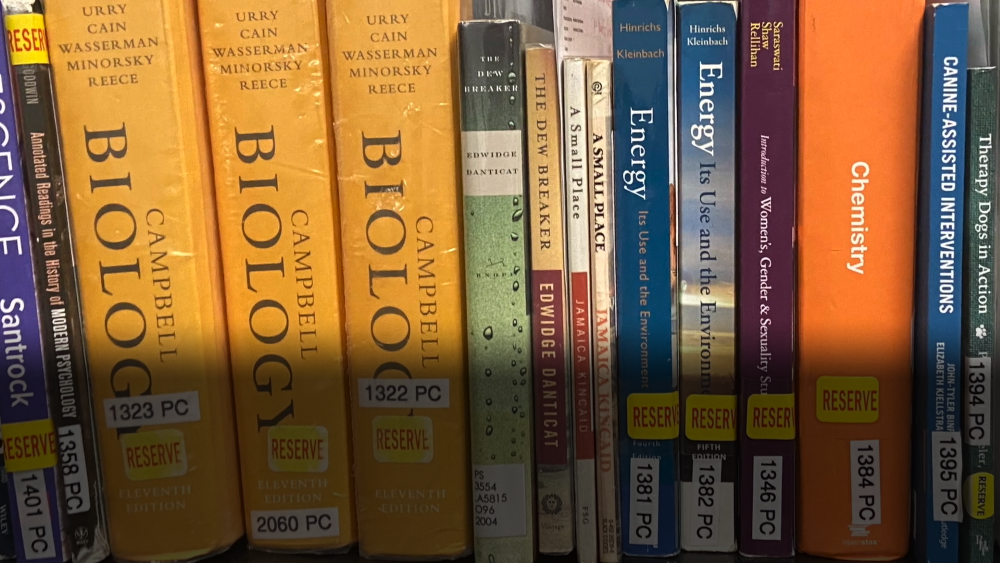I want to...
Save money on textbooks
For a comprehensive guide to saving on your textbooks that includes some of our top tips and information on other helpful people and organizations on campus, check out the interactive Buying Textbooks flowchart, or the accessible choose-your-own-adventure style Buying Textbooks game.
Find textbooks and course materials in the library
Your assigned reading may already be available in the library. Assigned books can be found in the general library collection, in our Course Materials collection, or as e-books. You may even be able to borrow your assigned materials from another library!

- Check out the Introduction to MUSCAT Plus tutorial for tips on searching the library catalog for all kinds of materials.
- Follow the Finding and Reading E-books tutorial for more details on how to search for and access materials from the library’s multiple e-book providers.
- If your book isn’t available from Musselman Library, you can fill out the Course Materials Request and Reserves form, and library staff will investigate acquiring an ebook copy or physical text for our Course Materials collection. You may be also be able to get a copy on loan from another library using Interlibrary Loan.
Find free textbooks
Open Educational Resources (OER)
Your class may already be using a free kind of course materials called open educational resource, or OER. OER are openly licensed, meaning that they’re not only free to access, but also able to be modified by your professor to better fit your class. Open books are completely legal to duplicate, so you can print what you need without fear of copyright violation. You can have open textbooks printed at the campus print shop for a nominal fee, and some open textbooks even have low-cost print versions available for purchase (for example, see OpenIntro and OpenStax titles).
Public Domain
Some older books, music, films, and other creative and scholarly works may be available in the public domain, meaning they are no longer protected by copyright. For U.S. publications, works published 96 or more years ago are in the public domain. For these works, you may be able to find free digital copies. For books, begin your search with Standard Ebooks, the DPLA Palace Bookshelf, and Librivox (for audiobooks.)
Advocate for affordable textbooks
Student advocacy can influence a professor’s choice to assign free, open textbooks instead of expensive, commercial textbooks. For example, you can use your course evaluation to provide feedback on the assigned books or speak directly with your professor about how textbook costs have impacted you. Check out these fast facts and tips for advocating for OER from Canadian OER advocate Tiffany MacLennan or these student advocacy resources from the US Student PIRGs!
Questions? Comments?
Contact us at oer@gettysburg.edu.